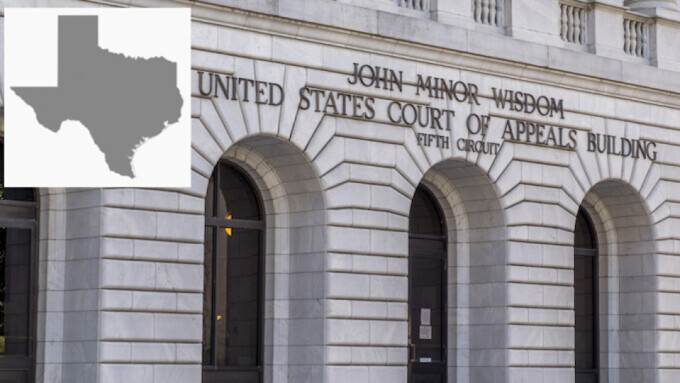AUSTIN, Texas — The Fifth Circuit Court of Appeals today upheld a controversial Texas law prohibiting social media platforms from “censoring speech based on the viewpoint of its speaker,” in a decision that ignored long-standing precedent that First Amendment protections prohibit only censorship by the government, not by private companies.
According to the court’s decision, even though platforms contend that “the statute is facially unconstitutional and hence cannot be applied to anyone at any time and under any circumstances,” the majority-conservative justices on the Fifth Circuit bench “reject the idea that corporations have a freewheeling First Amendment right to censor what people say.”
“Because the district court held otherwise,” the judges declared, “we reverse its injunction and remand for further proceedings.”
The ideologically-worded decision also included the judges’ opinion that “the platforms offer a rather odd inversion of the First Amendment. That Amendment, of course, protects every person’s right to ‘the freedom of speech.’ But the platforms argue that buried somewhere in the person’s enumerated right to free speech lies a corporation’s unenumerated right to muzzle speech.”
The implications of the platforms’ argument, they continued, “are staggering. On the platforms’ view, email providers, mobile phone companies, and banks could cancel the accounts of anyone who sends an email, makes a phone call, or spends money in support of a disfavored political party, candidate, or business. What’s worse, the platforms argue that a business can acquire a dominant market position by holding itself out as open to everyone.”
A Republican Law Upheld by Conservative Judges
The Republican-backed state law, HB 20, would make social media platforms liable for moderating content based on what the law defines as “viewpoints.” It was drafted with the support of Texas governor Greg Abbott as an answer to conservative complaints about supposed “liberal bias” in platform moderation, including the lifetime Twitter ban of former President Donald Trump.
The law has been subject to a back-and-forth judicial process. As XBIZ reported, back in May, the U.S. Supreme Court temporarily blocked HB 20, shortly after a Fifth Circuit three-judge appeals panel ruled that the law could go into effect “immediately” — in turn staying a previous district court injunction that had put enforcement of the law on hold.
The Fifth Circuit panel decision in May was communicated without explanation as to the court’s reasoning and with two of the judges remaining anonymous. At the time, tech news site Protocol reported that, during the hearings, “the jurists appeared to struggle with basic tech concepts, including whether Twitter counts as a website.”
That decision, ratified today, was seen “a win for conservative critics of the current interpretation of tech law, which underlies the operations of social media platforms such as Twitter and Facebook,” Protocol continued.
Industry Lawyer Weighs In
"It appears the Fifth Circuit got the First Amendment analysis alarmingly wrong," said industry attorney and First Amendment expert Lawrence Walters, of the Walters Law Group. "It deems the platforms’ actions in hosting and facilitating speech to be 'conduct,' not speech, in disregard of decades of precedent recognizing the First Amendment rights of platforms to engage in their own speech through editorial decisions."
Walters added that he suspects "the decision will be reversed if taken up by the Supreme Court."








